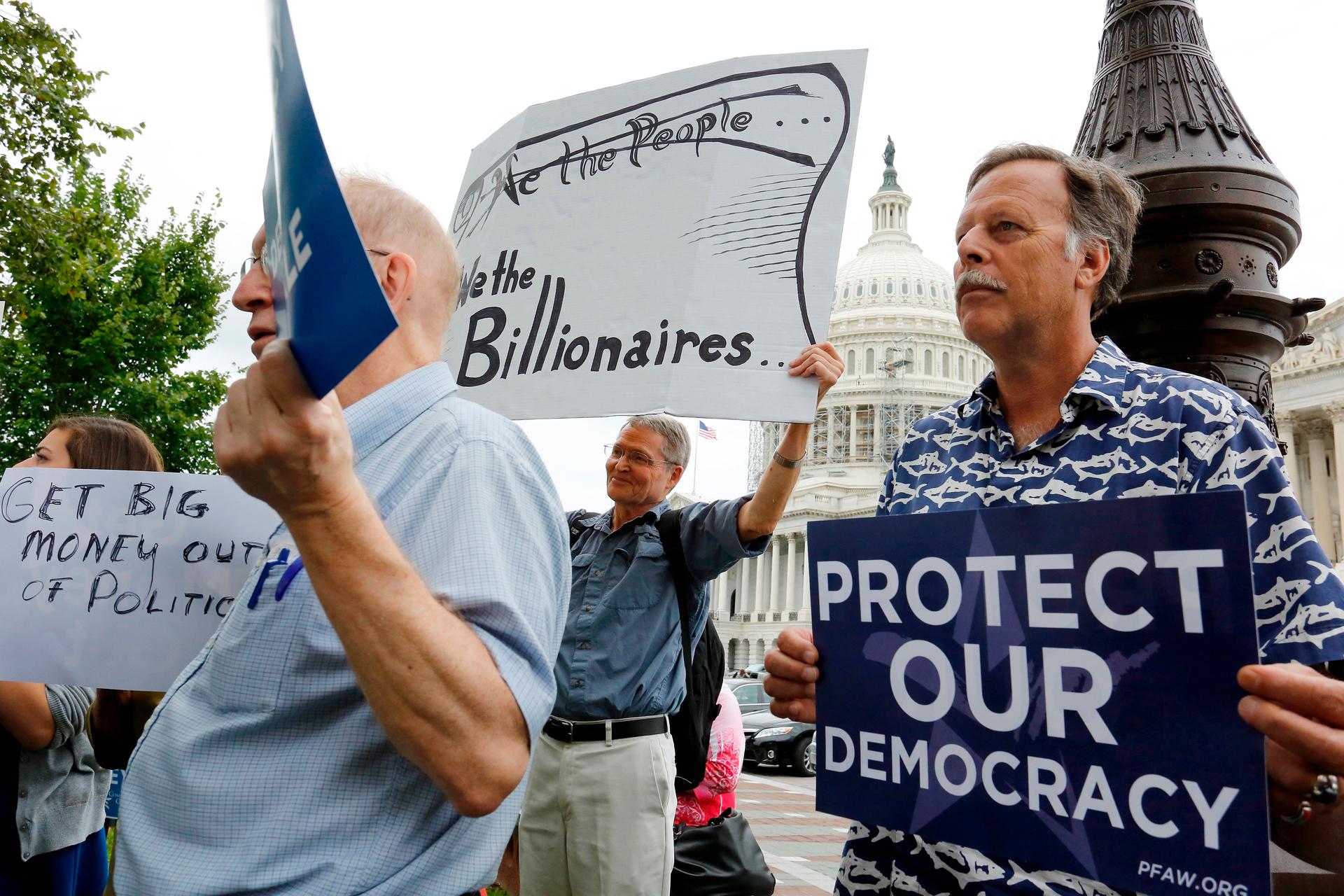Here’s how you beat the 1 percent at politics
Supporters look on at a news conference on Capitol Hill led by Democratic senators and congressmen in support of a proposed constitutional amendment for campaign finance reform on September 8, 2014.
Steve Hilton, the man who helped remake the British Conservative Party, is now applying his political savvy to American politics.
Hilton is the brains behind a new tech start-up that's billed as a kind of online dating for politics. The site, called Crowdpac, is designed to help match small donors with candidates who best match their views.
The site rates politicians based a wide range of information on candidates — everything from their voting records, statements, their own political donations and who's given to them — but Hilton says his research shows it's actually their donations that track most closely to their actual stances.
“If you want to understand how a politician will behave in office, the best thing you can look at is their campaign contributions — it’s the most powerful predictor of their behavior in office," he says.
Once Crowdpac scores how liberal or conservative candidates are, potential donors can select among 15 issues to find candidates who share their views and might be in tight races. In this way, small donors can put their money where it matters the most anywhere across the country.
“As a regular member of the public, it’s very hard to really understand where your donation can be really effective,” says Hilton. “The targeting of the money is the crucial thing. People do have a strong sense of the issues that they care about and the outcomes that they want to see, but they haven’t had the information about where they can be effective."
Hilton says this is one way to change the dynamics of campaign finance: Giving regular people the information on politicians that big donors like the Koch brothers or George Soros might have.
“That scoring system gives people simple tools that they can use to get involved in politics,” Hilton says. “Depending on what issue you care about or the things in politics that matter to you, we can show you which candidates you might want to donate to.”
He points out that while many measures are being pushed to reform America’s campaign finance structure, no better system is in yet in place. So CrowdPac allows everyday people to effect change within the existing structure.
“This is something we can do today within the system that we have,” Hilton says. “It’s a practical way of fighting the stranglehold of big money donors and special interests on the political system — not by reducing the amount of big money in politics, but increasing the amount of small money.”
In that way, Hilton argues, this system can take power away from big donors. "It’s not so much the party system that’s the problem, it’s the system that’s developing outside of the parties,” he says. That became a major issue in the 2012 presidential campaign, when super PACs — groups that are legally, though flimsily, barred from coordinating with parties or candidates — poured millions of dollars in unrestricted money into the race.
“That’s the phenomenon that people are concerned about — the idea that anyone with money can come in and literally buy a stake in the democratic process," Hilton says. "That just doesn’t feel right in terms of how the system should work.”
This story is based on an interview from PRI's The Takeaway, a public radio program that invites you to be part of the American conversation.
